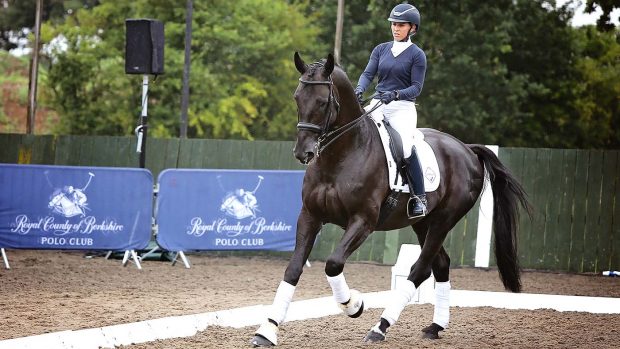A study has revealed that the majority of older horses suffer from eye problems — and their owners are completely unaware.
Researchers discovered that while 87.8% of horses aged 15 or over had signs of ocular disease, just under 4% of their handlers reported a known issue.
In the study, led by Fernando Malalana and funded by the University of Queensland, 327 horses were given a full ophthalmic examination, with 287 showing abnormal findings. In contrast, just 3.3% of their owners reported signs eye disease.
The findings back up existing studies which have also found a high instance of ocular changes in horses aged 15 or over. A previous UK based sample indicated eye problems in 80.7% of older horses put forward for veterinary health checks; with ophthalmic lesions estimated as present in between 81 and 100% of the geriatric horse population.
“Aged horses are a useful group in which to study ocular disease as many ocular conditions leave permanent lesions or are progressive and so will be most prevalent in an older population,” Malalana and his colleagues wrote.
“Repeated episodes of minor trauma and low‐grade inflammation lead to what some may refer to as normal ageing within the eye. These episodes have cumulative effects, resulting in ocular pathology of increasing severity with age 14.
“Although it is expected that owners have less ability to identify ocular disease compared with veterinary surgeons, owner recognition of disease is important as they are the persons responsible for presenting animals for veterinary care unless routine health screens are performed.”
Cataracts were one of the most prevalent conditions found in the study, affecting just over a third of participants. Nearly 14% had lesions on the cornea, either current or healed, and almost 85% exhibited lesions deep within the eye (posterior segment), including issues with the retina or optic nerve.
Despite the frequent presence of lesions, most of the horses in the study did not show signs of reduced vision on clinical exam, with 94.4% still demonstrating a normal “menace response” (blink response to a hand being moved towards the eye).
The study also revealed that risk factors for eye disease included a history of discharge; increasing age and appaloosa colouring — these horses were more likely to suffer from cataracts than others.
Continues below…

First aid: Eye injuries
The dusty nature of the stable yard can play havoc with your eyes and knowing what to do if a

Subscribe to Horse & Hound magazine today – and enjoy unlimited website access all year round

5 incredible facts about horses’ eyes
With researchers working to fill in the gaps in our knowledge about horses' eyes, Andrea Oakes asks Dr Carol Hall
It concluded that the poor correlation between the presence of eye disease and owners’ awareness could be attributed to the difficulty in identifying minor lesions, as well as the horses’ ability to cope with minor impairments.
“Horses usually cope well with minor visual impairment in a familiar environment and owners may not notice their horse has a vision impediment until visual impairment is severe or there are changes in the horse’s environment. In addition, many of these lesions such as bullet‐hole lesions (small areas of focal chorioretinitis) are typically incidental findings of no clinical significance,” the study noted.
“It would be anticipated that owners would not be able to detect small, incidental or mild lesions or recognise anything abnormal deep to the lens when examining the eye, so we should only expect owners to note lesions associated with obvious visible opacities or those associated with vision loss that would affect behaviour and performance.
“This has highlighted problems in obtaining information on ocular conditions from horse‐owners. However, despite the high prevalence of ocular lesions in this study, the effects of these lesions in terms of vision impairment are small.”
For all the latest news analysis, competition reports, interviews, features and much more, don’t miss Horse & Hound magazine, on sale every Thursday.




